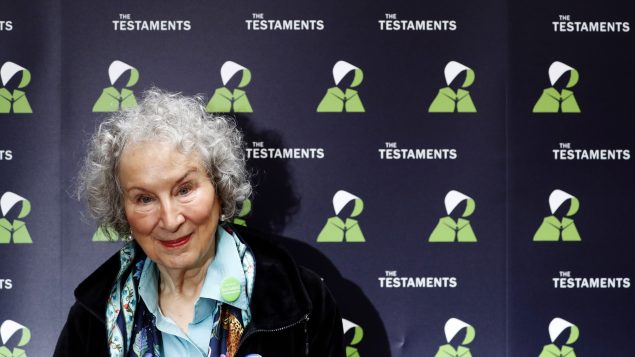Canadian writer Margaret Atwood has joined dozens of intellectuals who have signed an open letter warning about a growing climate of intellectual and ideological intolerance that weakens “our norms of open debate and toleration of differences in favor of ideological conformity.”
The open letter in Harper’s Magazine comes amid a debate over so-called cancel culture – where prominent people face attack for sharing controversial opinions.
Authors J.K. Rowling, Salman Rushdie, linguist and philosopher Noam Chomsky, chess champion Gary Kasparov are also among the nearly 150 prominent thinkers, academics, activists who warn that liberal cultural institutions are facing “a moment of trial.”
In addition to Atwood, other Canadian signatories include political pundit David Frum, longtime New Yorker writer Malcolm Gladwell, former federal Liberal Party leader Michael Ignatieff and literary critic and writer Jeet Heer.
“The forces of illiberalism are gaining strength throughout the world and have a powerful ally in Donald Trump, who represents a real threat to democracy,” the letter says. “But resistance must not be allowed to harden into its own brand of dogma or coercion—which right-wing demagogues are already exploiting.”
“As writers we need a culture that leaves us room for experimentation, risk taking, and even mistakes. We need to preserve the possibility of good-faith disagreement without dire professional consequences.”https://t.co/4zPjuPNXBu
— Harper’s Magazine (@Harpers) July 8, 2020
The open letter warns that democratic inclusion sought by activists demanding racial and social justice can be achieved “only if we speak out against the intolerant climate that has set in on all sides.”
“The free exchange of information and ideas, the lifeblood of a liberal society, is daily becoming more constricted,” the letter says.
“While we have come to expect this on the radical right, censoriousness is also spreading more widely in our culture: an intolerance of opposing views, a vogue for public shaming and ostracism, and the tendency to dissolve complex policy issues in a blinding moral certainty.”
Rowling, for example, has attracted criticism over her views on transgender issues, which have angered many activists. In a series of tweets, Rowling said she supported transgender rights but did not believe in “erasing” the concept of biological sex.

Writer J.K. Rowling attends the British premiere of ‘Fantastic Beasts: The Crimes of Grindelwald’ movie in London, Britain, Nov. 13, 2018. (Toby Melville/REUTERS)
The comments prompted Daniel Radcliffe and other cast members of the Potter films to publicly disagree with her. Rowling was unmoved, but was attacked for weeks online.
The letter says it has become all too common to hear calls for swift and severe retribution in response to perceived transgressions of speech and thought.
“More troubling still, institutional leaders, in a spirit of panicked damage control, are delivering hasty and disproportionate punishments instead of considered reforms,” the letter says.
“Editors are fired for running controversial pieces; books are withdrawn for alleged inauthenticity; journalists are barred from writing on certain topics; professors are investigated for quoting works of literature in class; a researcher is fired for circulating a peer-reviewed academic study; and the heads of organizations are ousted for what are sometimes just clumsy mistakes.”
This has resulted in the steady narrowing of the boundaries of what can be said without the threat of reprisal.
“We are already paying the price in greater risk aversion among writers, artists, and journalists who fear for their livelihoods if they depart from the consensus, or even lack sufficient zeal in agreement,” the letter says.
“This stifling atmosphere will ultimately harm the most vital causes of our time. The restriction of debate, whether by a repressive government or an intolerant society, invariably hurts those who lack power and makes everyone less capable of democratic participation.”
The way to defeat bad ideas is by exposure, argument, and persuasion, not by trying to silence or wish them away, the letter says.
“We refuse any false choice between justice and freedom, which cannot exist without each other,” the letter says. “As writers we need a culture that leaves us room for experimentation, risk taking, and even mistakes.”
With files from The Associated Press







For reasons beyond our control, and for an undetermined period of time, our comment section is now closed. However, our social networks remain open to your contributions.